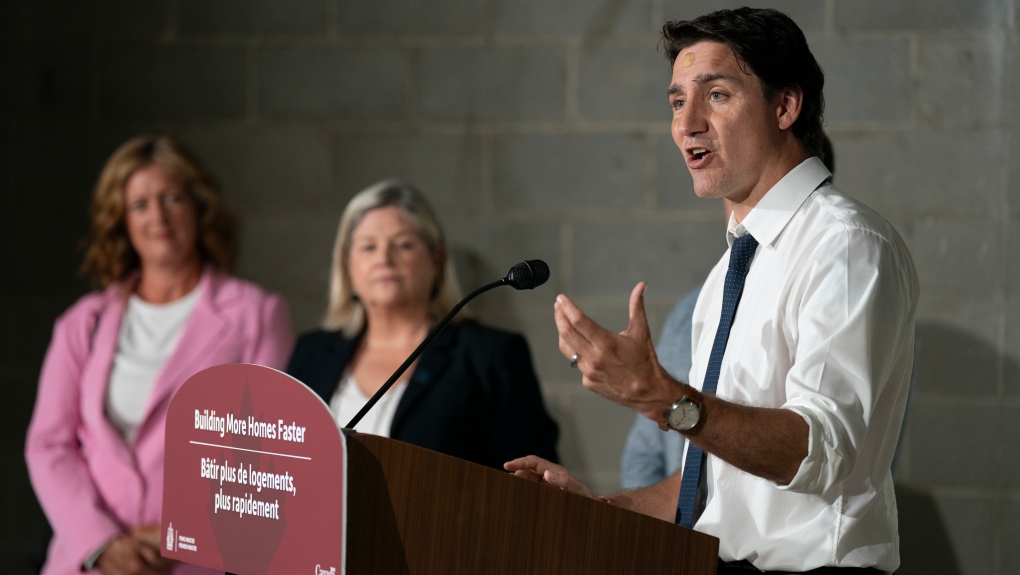Less than a week after naming his new cabinet vowing a renewed focus on the concerns of Canadians, the one name Prime Minister Justin Trudeau couldn’t keep out of his mouth on Monday was Pierre Poilievre. At a housing announcement Trudeau brought the Conservative leader up multiple times, from panning his policy proposals, to his leadership style.



The article lays most of it out, but the Federal government really can’t do much about housing, since interest rates are set by an independent central bank, and housing development and zoning is a provincial issue. Could you imagine how much Ontario or Alberta would start pissing and moaning if the Feds tried to assert any authority there?
Apart from something seriously dramatic like changing taxation on mortgage interest (make it deductible on primary residences only, and not additional properties), or creating a heavy wealth tax on additional properties - both of which would be political suicide for any Federal party - the issue isn’t something that can be addressed by the Feds. For the record, I think both of those ideas would be enormously beneficial to Canadians who are looking to own homes, as well as address the cost of housing, but the only party that has the will to make real changes like that are the Federal NDP.
And before anyone jumps on “but what about immigration”, the high immigration rates are what helps bring unemployment up, which is desirable during a period where you’re trying to squash inflation, and also helps preserve the tax base, since landed Canadians are having less children. Not to mention filling certain skilled labour categories.
So it’s a hell of a Gordian knot, but it certainly has very little to do with the Feds.
Disagree. The main problem is lack of housing. We need to build more, a lot more, and the Feds control CMHC. They’ve been content to let housing be the biggest GDP item because it serves the NIMBYs who see their overpriced house as an investment (and I say this as a homeowner whose house has appreciated 250% since I bought it)
Again, which level of government controls zoning and housing permits? What about utilities, roads, firefighters, water rights, etc?
Right, provinces. So without provinces doing enough, the CMHC cannot have any direct effect on the national housing shortages.
Maybe things are different in your neck of the woods but I have some experience in the industry (apartments, not single-family) and neither permits, utilities, roads nor firefighters has been a significant issue. Zoning, sometimes - but municipal governments are well aware of the housing shortage and have been willing to play ball (again, IME). BTW most of the issues you raise are under municipal purview, not provincial.
I’d say cost of construction is the main problem. In NB it’s impossible to build anything under 200k per door, and even that target requires some vigilance to hit. That’s why there’s an inverted bell curve going on with a bunch of slums at the low end and a bunch of luxury apartments at the top, but hardly anything in the middle.
Absolutely right on the provincial / municipal differences for a number of those points I raised.
Also correct that most of the shortages are due to NIMBYism and a lot of refusal / blockages on city central neighbourhoods being densified in the name of “property values”. They really need to stop asking the public and start telling instead. Maybe we could get something done that way.
So of I understand this correctly, that means there is very little the federal government can do besides use indirect levers to decrease cost, like:
What else can be done at the federal level?
The big cost savings items all seem like they are Municipal and Provincial, like: getting rid of minimum parking requirements, deceasing per unit land costs, and allowing more units to be built in the communities people want to live in.
Sort of. One thing Feds/CMHC could do is funnel serious money into affordable housing programs to build more housing (not subsidized demand, as the NB government is doing, which only enriches landlords). There are already non-profits and community orgs who could manage these buildings once complete.